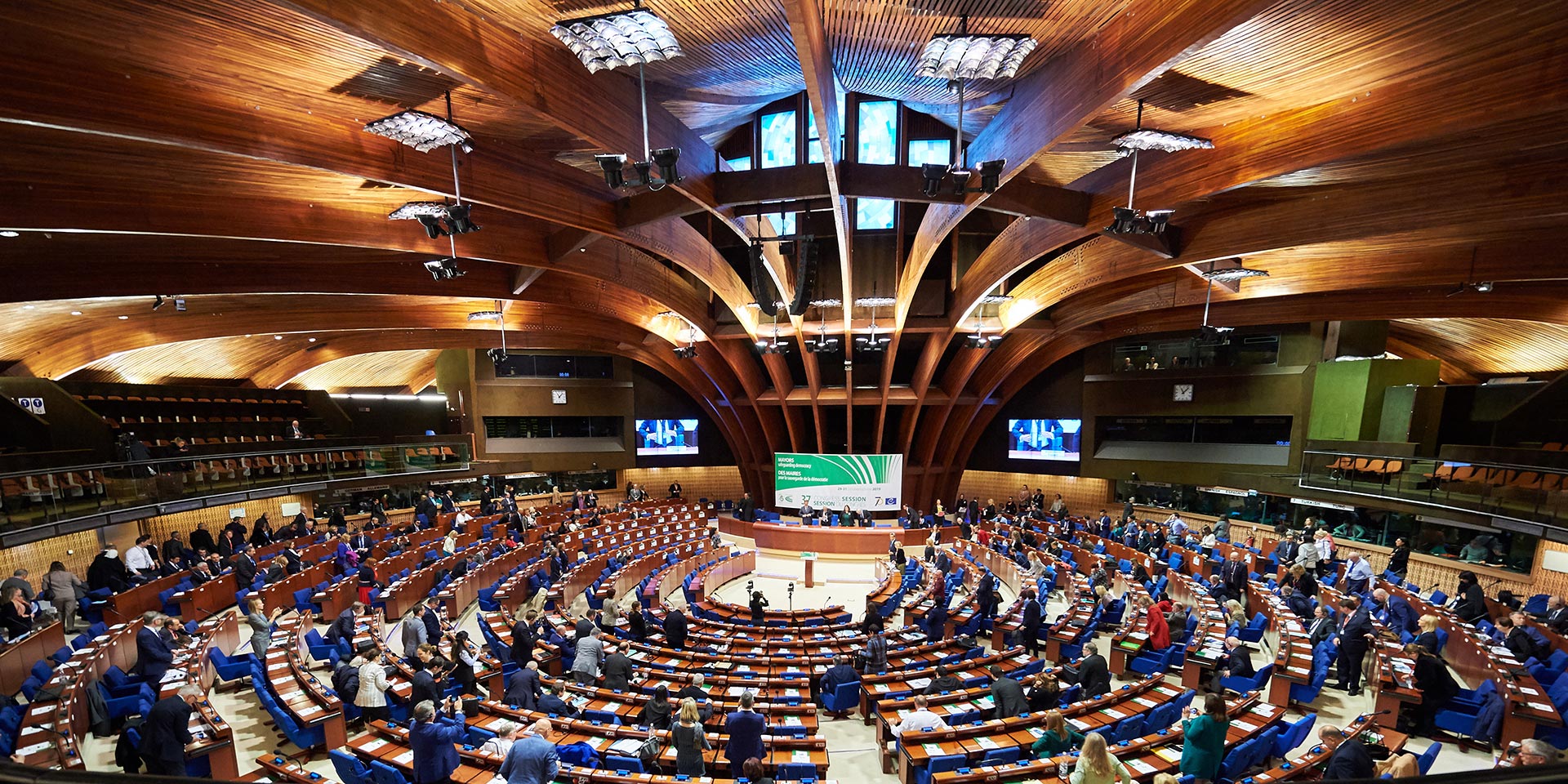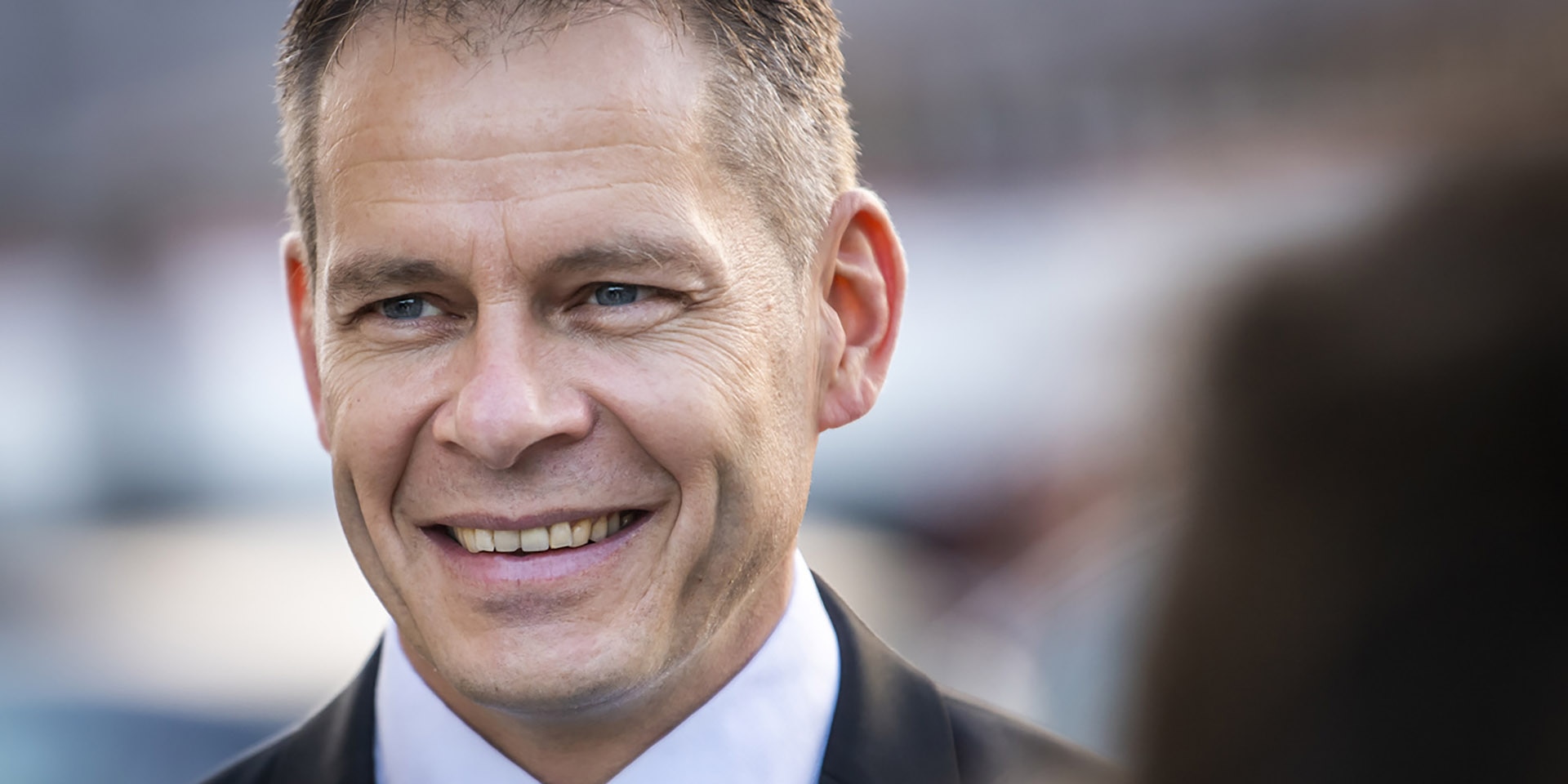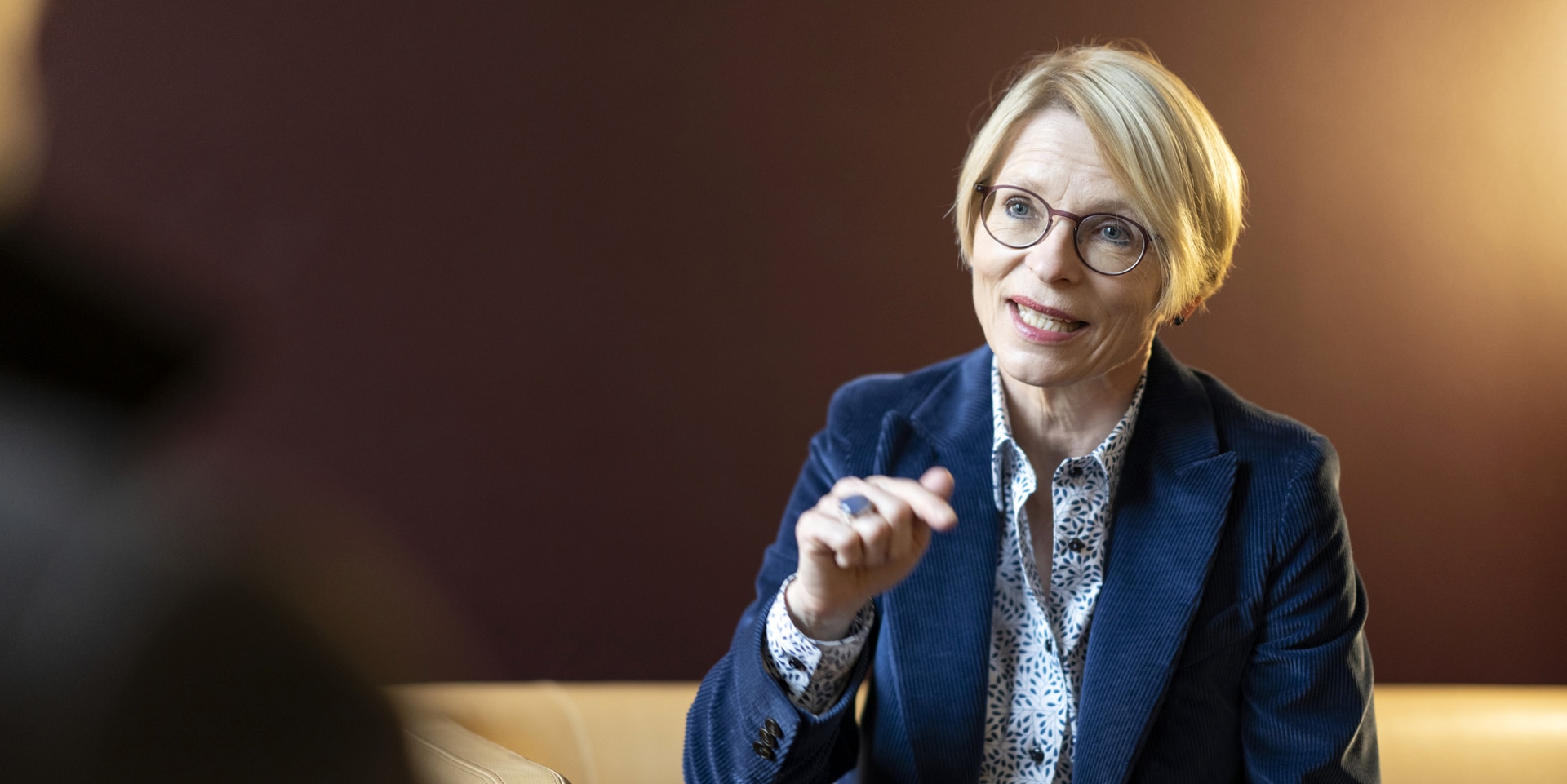“Switzerland gives a clear insight into the good relationship between citizens and government”
President of the Congress of Local and Regional Authorities of the Council of Europe, Leendert Verbeek, visited Switzerland between 30 April and 3 May. The aim of the visit was to present Swiss federalism in situ. Are there any experiences from his visit that he could now apply profitably in the Netherlands and in the Congress? He answers our questions.
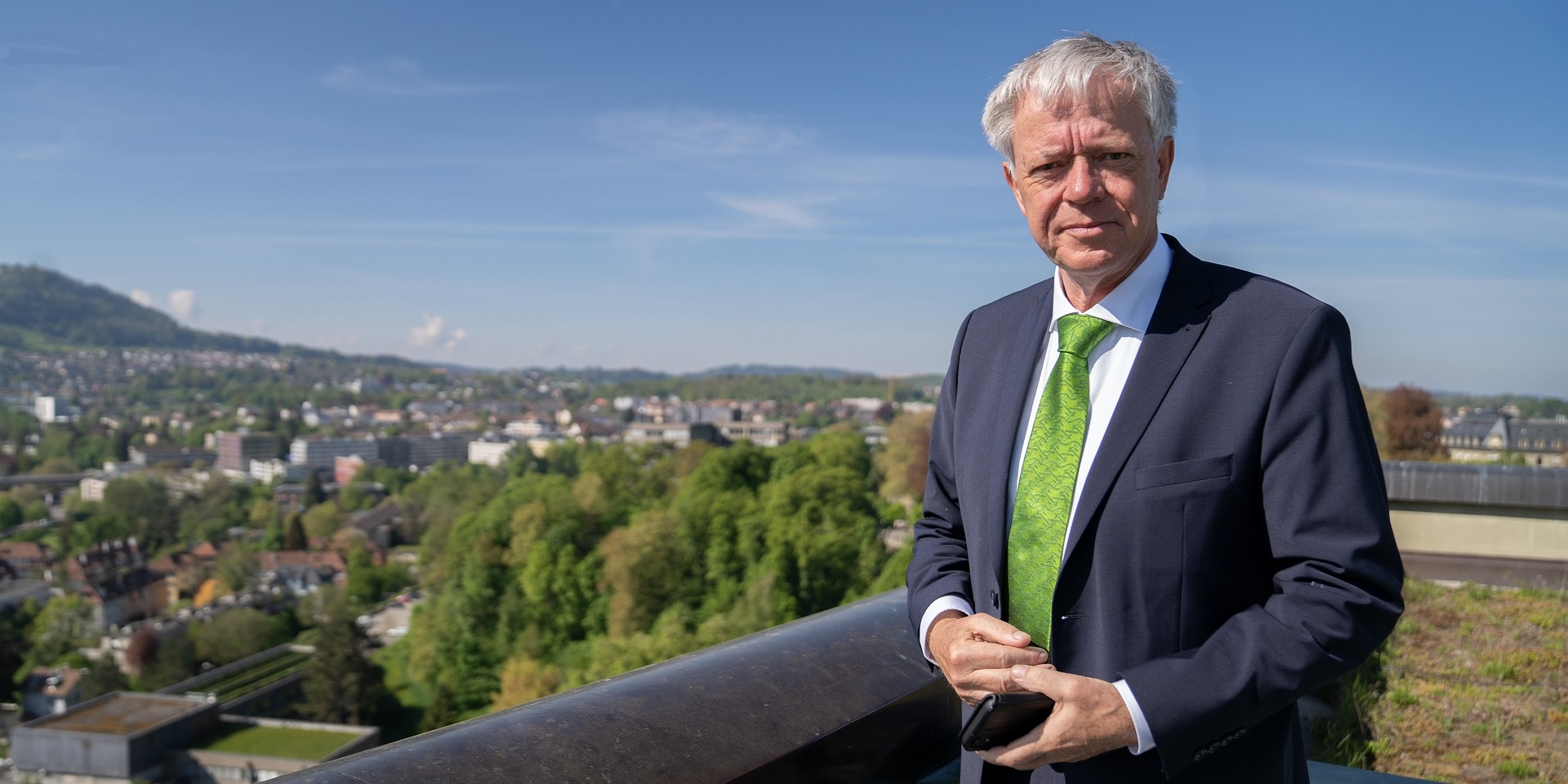
Congress President Leendert Verbeek talks about his first official trip to Switzerland. © DFAE
Mr. Verbeek, this is your first official visit to Switzerland. What was your relationship with Switzerland and what image did you have of our country and its local and regional democracy before your visit?
In many of my speeches I talk about the relationship between the culture of a country, the mindset of its people and the way it implements democracy on its territory. Switzerland has its own style of democracy, which also makes it unique.
The geography of Switzerland is also special. It is situated in the middle of high mountains and is divided into a number of cantons. This is totally different from the Scandinavian countries, the southern countries, the eastern countries or even the Netherlands, which is a flat country divided into various provinces. This difference also makes it very beautiful and is reflected in the way its democracy is implemented.
On Sunday you visited a Landsgemeinde in Glarus. What were your impressions?
I knew the system, but it's obviously different to see it happening. There were 8,000–10,000 people in the 'Ring', and it was interesting to see the very active participation of younger and older Glarus citizens during the debates. For each topic, several people took the floor and some of the votes were very close. And at the end of the vote, the outcome was announced. People also communicate a lot through their body language and facial expressions. You had a sense that they weree very satisfied with having accomplished their democratic mission.
Switzerland is often referred to as a good example of direct democracy. The latest monitoring report of the Congress was described as 'particularly positive'. In which specific fields can Switzerland make a particular contribution to the work of the Congress?
Switzerland is a very good example of democracy, but it cannot be copied. Switzerland also gives a clear insight into the relationship that persists between citizens and their government. In every country, the issue of the government's relationship with the general public is high on the agenda. How do we communicate with the population? How do we make clear the reasons for the sometimes difficult decisions we have taken? The Swiss model offers some fairly simple answers. People accept decisions because they are involved in the process and in the debate, can listen to the arguments, and participate in the decision-making. This understanding of the system is also a cultural thing.
In my province of Flevoland in the Netherlands, which has a population of 420,000, we could not simply reproduce a Landsgemeinde. A very small proportion of the population would actually come if we organised this locally. This is not the culture of the Netherlands. To do this, it would be necessary to reduce the size of the provinces. But as you know, the tendency nowadays is to create ever larger provinces and regions. So we have to find other solutions for democracy.
On the other hand, where do you think improvements can be made?
The example of Glarus also shows what can still be improved. The 8,000–10,000 people who were there on Sunday represent almost fifty per cent of eligible voters. The other half were not there. What is the opinion of the other fifty per cent? The cantonal government should be able to find out the opinions of those who did not attend and also look into the reasons why people do not come out to vote. This is a very sensitive issue that needs to be addressed.
Where do you see similarities and differences between local and regional democracies in your country, the Netherlands, and Switzerland?
I see a lot of similarities, but more generally with the countries of Western Europe, to which the Netherlands belongs. The people who live in the countries of this region, including Switzerland, have a clear vision. They are not afraid to express their opinions. It is also an age-old culture that has evolved over time. These people speak out and make their opinions known in no uncertain terms. It is in the attitude of the people, in their openness, in their willingness to debate and seek compromise, but also in their acceptance of disagreement that I see parallels between Switzerland and the Netherlands. Sometimes you win, sometimes you lose – that is the way it is.
You are the King’s Commissioner for the Province of Flevoland. What experiences from your European mandate can you apply profitably to the Netherlands?
Thanks to my experience and the years I have been active in the Congress, I have a broader view of what's happening abroad. And I am more capable than I was before of analysing our own type of democracy. How does it work, what are the habits that have been laid down, what are the informal rules that regulate it? In normal times, in your own country, you don't think about it. It is the comparison with other systems that allows us to have a better awareness of our own.
For example, I was able to talk to many people in Glarus and they gave me the impression that they were very conscious of their own values, but were less concerned about what was happening outside their canton.
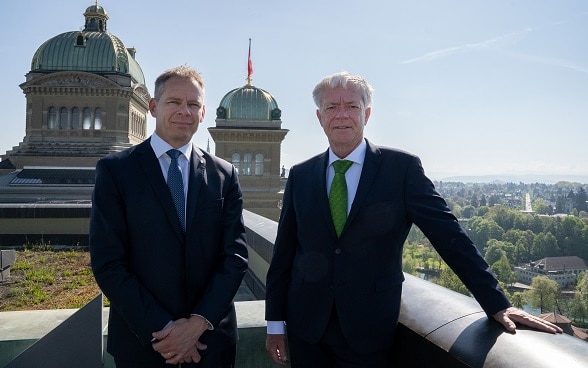
The Russian military aggression against Ukraine is omnipresent, also in the topics addressed by the Congress. To what extent does this situation affect the mission of the Congress and your own work?
The Council of Europe was created after the Second World War with the mission to prevent wars, not to manage them. We have managed to keep the peace for at least 70 years, which is a success in itself. But today we have failed to prevent the war. There have been political debates and discussions with Ukrainian and Russian representatives, but these didn't work and Russia attacked for its own reasons.
Russia has gone against all the values of the Council of Europe. And we have not succeeded in bringing Russia into our discussions . So the time has come for the Council of Europe to redefine its position, mission and role and the means and resources to achieve them. We in the Congress join those who are calling for a summit of Heads of State and Government. This debate can be conducted at the highest political level. We need to look again at what we want to do in the Council of Europe and set an agenda for the decades to come.
In which areas can the Congress provide special support to Ukraine? What specific initiatives has the Congress launched?
A major step was making it clear to Russia that this war is unacceptable. The integrity of an individual country of the Council of Europe is undebatable. The effect of the invasion is that the other member states are becoming more united than they ever were before.
Ukraine of course remains a member of the Council of Europe and of the Congress, so we are organising, especially at the level of the Congress, all kinds of activities to support Ukraine. We are talking to the mayors, to the government and to Parliament. We have set up the 'cities4cities.eu' platform where we can exchange knowledge, note questions, and make connections between cities that want to support these activities. It is about providing humanitarian aid and help with generators, machines and medical equipment, but also about sharing business continuity experience to keep basic municipal services running at a time of war.
It is also interesting to see how important it is to keep in contact with the President of Ukraine, but also with all the local representatives. Are the discussions more targeted?
Yes, they are! It's very interesting to see how the roles of representatives in the Congress , such as mayors, evolve in times of war. We could not organise specific and targeted aid without the support of local and regional authorities. But it's not all a bed of roses, of course.
For example, we recently had a meeting with members of Kyiv city council about their discussions on the role of the army. What are the responsibilities of the army and what are the responsibilities of local councils? What decisions are still taken by the mayor and the local council, even in wartime? And what will happen when they return to a post-war situation? The local people and representatives will need our help when the time comes to reestablish democratic institutions and procedures.
About the Congress of Local and Regional Authorities of the Council of Europe
Based in Strasbourg, the Council of Europe is Europe's oldest intergovernmental institution. Protecting and promoting human rights, democracy, and the rule of law is at the heart of its activities.
The Congress of Local and Regional Authorities is one of the institutional pillars of the Council of Europe, the others being the Committee of Ministers, the Parliamentary Assembly, and the European Court of Human Rights. It is an advisory body composed of 612 elected representatives from 46 countries (306 full and 306 substitute members). The Congress's varied activities include ensuring implementation of the principles enshrined in the European Charter of Local Self-Government, coordinating local and regional election monitoring missions, and advising other bodies on local and regional policymaking.

